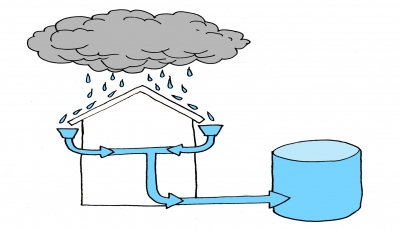Optimizing Industrial Waste Water Treatment Effectiveness with Reclaim Waste Melbourne
Optimizing Industrial Waste Water Treatment Effectiveness with Reclaim Waste Melbourne
Blog Article
The Important Function of Appropriate Liquid Waste Removal Strategies in Waste Monitoring
In the world of waste monitoring, the importance of utilizing suitable liquid waste elimination methods can not be overstated. The complex web of interconnected environmental, health and wellness, and safety and security factors to consider depends upon the efficient management of liquid waste. From guarding our environments versus contamination to supporting public health and wellness requirements, the correct disposal of liquid waste plays a critical function in maintaining a healthy and balanced and sustainable environment. This crucial function extends beyond simple waste elimination, affecting a wide variety of sectors and elements of our every day lives. It is within this structure that the application of sound fluid waste removal techniques stands as a keystone of responsible waste administration techniques.
Relevance of Correct Fluid Waste Removal
Why is correct liquid waste removal vital in maintaining public and ecological health criteria? Proper fluid waste elimination is necessary for safeguarding the environment and upholding public health standards.
Ecological Benefits of Reliable Strategies
Carrying out reliable liquid waste elimination strategies not just safeguards the environment yet likewise plays a critical function in preserving public health and wellness criteria. By using correct strategies, such as sophisticated filtering systems and liable disposal techniques, the ecological advantages are substantial. One of the primary advantages is the avoidance of contamination of all-natural water resources. Inappropriate disposal of fluid waste can bring about toxins leaking right into the soil and at some point reaching groundwater tanks, impacting both human health and wellness and communities.
Furthermore, efficient fluid waste elimination techniques aid reduce the danger of waterborne illness. By ensuring that harmful compounds are not launched into water bodies, the spread of conditions triggered by contaminated water can be minimized. Moreover, correct waste administration techniques contribute to the preservation of marine life. Harmful chemicals in liquid waste can have damaging impacts on fresh water and marine organisms, disrupting ecological communities and biodiversity.
Health And Wellness Ramifications of Inadequate Removal
The detrimental health and wellness effects associated with poor liquid waste elimination underscore the important significance of proper disposal techniques and efficient administration practices. Inappropriate elimination of fluid waste can result in the contamination of water resources, posing major health dangers to both human beings and wild animals. When fluid waste including hazardous chemicals, pathogens, or other contaminants is not adequately gotten rid of and treated, it can leak right into groundwater, rivers, and oceans, endangering the quality of drinking water and water ecosystems.
Direct exposure to polluted water due to insufficient fluid waste elimination can lead to different health issue, including gastrointestinal illnesses, skin infections, respiratory problems, and even a lot more severe problems such as organ damages or neurological disorders. Additionally, the launch of unattended fluid view publisher site waste right into the environment can add to the spread of waterborne conditions, creating public health crises that require considerable resources to attend to.
For that reason, implementing correct fluid waste removal strategies is vital to guarding public health and protecting the stability of ecosystems. Industrial waste water treatment. By prioritizing efficient waste management practices, we can minimize the health risks related to insufficient liquid waste elimination and advertise a healthier atmosphere for all
Function in Avoiding Water Contamination
Effective fluid waste elimination methods play a vital role in preventing water contamination and safeguarding public wellness. Incorrect disposal of liquid waste, such as neglected sewer or commercial effluents, can lead to the contamination of water sources, posing serious risks to human health and the atmosphere. When fluid waste is not appropriately eliminated and treated, unsafe compounds can seep right into groundwater, rivers, and seas, infecting alcohol consumption water materials and see page marine ecological communities.
Infected water can carry a variety of pollutants, consisting of pathogens, hefty metals, and chemicals, that have the prospective to trigger waterborne conditions, eco-friendly damages, and long-lasting wellness impacts in humans and wildlife. Correct liquid waste removal methods, such as wastewater therapy plants, septic tanks, and commercial effluent treatment centers, are crucial for getting rid of or reducing the effects of harmful impurities prior to they can enter water bodies.
Guaranteeing Safe Disposal Practices
Making certain correct disposal methods for fluid waste is important to shield water sources and public wellness from contamination dangers. Safe disposal techniques include adhering to guidelines and guidelines stated by ecological companies to minimize the effect of liquid waste on the atmosphere. Proper containment and storage space of fluid waste are important to prevent leaks or spills that might permeate right into the dirt and pollute groundwater sources. Executing effective therapy techniques, such as filtration or chemical processes, before disposal can also substantially minimize the damaging results of fluid waste on the atmosphere.

Verdict
Finally, appropriate fluid waste removal techniques play a vital duty in waste management by avoiding environmental contamination and guarding public health. Reliable removal methods make sure the safe disposal of liquid waste, minimizing the adverse effect on environments and water sources. It is vital for markets and people to embrace accountable practices to reduce the dangerous results of improper fluid garbage disposal.
In the realm of waste management, the relevance of utilizing appropriate liquid waste elimination approaches can not be overemphasized. It is within this structure that the implementation of sound liquid waste removal strategies stands as a foundation of liable waste monitoring practices.

Report this page